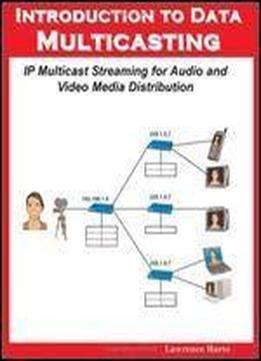
Introduction To Data Multicasting, Ip Multicast Streaming For Audio And Video Media Distribution
by Lawrence Harte /
2008 / English / PDF
4.2 MB Download
This book explains how to send IP data packets from one source to multiple receivers. You will discover how multicasting (one-to-many or many-to-many) can dramatically increase the efficiency of a network compared to unicasting (one-to-one) or broadcasting (one-to-all) transmission. Multicasting is critical for mass media streaming sources such as IP television and Internet radio. Without the use of multicasting, a 3 Mbps television streaming service would require data connections of 30 Gbps to provide service to 10,000 customers. This book explains the fundamentals of how multicasting systems operate including how members find, join and disconnect from multicast sessions. You will learn about addressing along with multicast member and group management. Explained are some of the ways that multicast systems can provide varying levels of quality of service for different multicast members. There are many types of multicast protocols to choose from and you will learn how the characteristics vary between the protocols such latency, scalability and protocol overhead. The multicast protocols explained in this book include IGMP, PIM-DM, PIM-SM, MOSPF, CBT and BGMP. Multicast security methods are covered that can be used to ensure only authorized members may attach and decode multicast media. An introduction to emerging gridcasting and peercasting processes is included.
[b]Some of the most important topics featured are: [/b]
. Multicast Applications and Operation
. Dense and Sparse Mode Multicasting
. Intra-Domain and Inter-Domain Multicasting
. Bandwidth Control
. Multicast Quality of Service
. Multicast Security
. Member Addressing and Group Management
. Multicast Protocols IGMP, PIM-SM, PIM-DM, MOSPF, CBT, and BGMP
. Multicasting in Ethernet Networks
. Gridcasting and Peercasting











